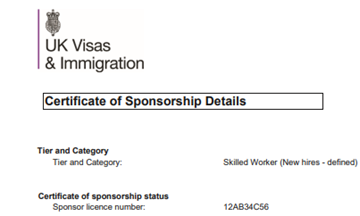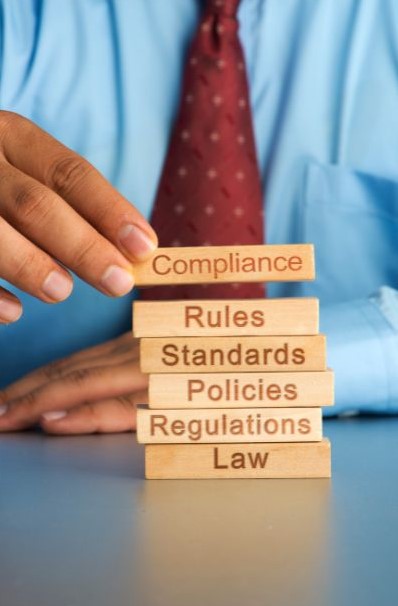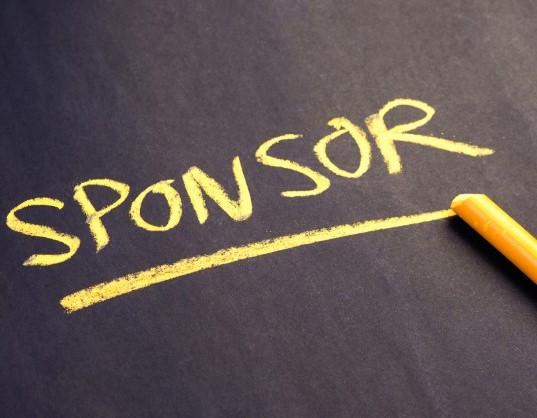UK Sponsor Licence Compliance: 2024 in Review and What to Expect in 2025
Be Prepared for Increased Home Office Sponsor Compliance Activities in 2025

2024 was a landmark year for UK sponsor licence enforcement, with the Home Office ramping up compliance measures to unprecedented levels. Enforcement actions, including suspensions and revocations, increased dramatically as part of a broader government agenda to reduce net migration, target rogue sponsors, and raise revenue through fines.
As we move into 2025, it is clear that these measures are not a temporary initiative. The Home Office is committed to prioritising sponsor licence compliance, leaving businesses reliant on international talent with a clear message: compliance is no longer optional—it is essential.
2024: A Year of Compliance Crackdowns
The latest figures from 2024 highlight a significant escalation in enforcement actions. Over the course of the year, 1,342 sponsor licences were suspended, and 1,222 were revoked. This represents a 245% increase in suspensions and a staggering 396% increase in revocations compared to 2023, and we are still waiting for the last three months' data to be published.
The government’s agenda is multifaceted: addressing abuses of the sponsor system, curbing net migration, and raising funds through fines. Targeting rogue sponsors was central to this strategy, with the Home Office particularly focusing on employers who failed to meet their obligations or who sponsored individuals in roles that did not meet visa criteria or even exist.
Illegal Working Fines: A Key Component of the Crackdown
In addition to sponsor licence enforcement, the Home Office introduced higher penalties for illegal working. This was another area where the government sought to tighten its grip while addressing public and political pressure to reduce net migration.
Employers found employing illegal workers now face fines of up to £60,000 per worker, a significant increase from the previous maximum of £20,000. This sharp rise in penalties is designed to act as a deterrent while raising capital for enforcement activities.
The Home Office also increased the frequency of unannounced audits and inspections, particularly targeting industries such as hospitality, healthcare, construction, and retail, where the risks of illegal working are perceived to be higher. These actions have sent a clear signal to businesses that compliance failures will not be tolerated.
2025: A Year of Compliance and Accountability
Looking ahead, 2025 is set to build on the momentum of 2024. The Home Office has outlined three key objectives for the coming year:
- Stamping Out Rogue Sponsors
Businesses that fail to meet their obligations, such as underpaying sponsored workers or misusing Certificates of Sponsorship (CoS), will face swift enforcement action. The Home Office aims to tighten its monitoring of sponsors to ensure that only compliant employers can access global talent. - Reducing Net Migration
With the government under ongoing pressure to lower migration levels, sponsors should expect more rigorous checks on job roles, salary thresholds, and the genuineness of sponsored positions. - Raising Revenue Through Fines
The increased penalties for illegal working are expected to remain in place, with further inspections and audits targeting non-compliant employers. This helps fund enforcement and aligns with the government’s wider immigration strategy.

What This Means for Sponsor Licence Holders
The rising enforcement trend underscores the need for robust compliance practices. Businesses holding sponsor licences should take proactive measures to remain in good standing.
Conducting regular internal audits should be a priority. Reviewing processes to ensure sponsorship duties are met, such as accurate record-keeping and timely Sponsor Management System (SMS) updates, can help avoid costly mistakes.
Strengthening right-to-work checks is another critical area. Employers must ensure they verify the immigration status of all employees as stipulated in official guidance and maintain the required documentation to avoid penalties.
Investing in training for HR teams is highly recommended. Ensuring those responsible for managing sponsorship duties have up-to-date knowledge can significantly reduce non-compliance risk.
Finally, leveraging technology can make compliance more manageable. Digital tools that automate tracking visa expiries, reporting obligations, and compliance deadlines can reduce human error and improve efficiency.
Opportunities Amid Challenges
While the compliance environment may seem challenging, it also presents opportunities for businesses prioritising compliance. A strong track record protects sponsorship privileges and enhances a company’s reputation as a reliable employer, making it more attractive to top international talent.
Businesses that demonstrate a commitment to compliance will find themselves in a stronger position to navigate the complexities of global talent acquisition and retain a competitive edge in their markets.

Final Thoughts
2024 has shown that the Home Office is serious about holding sponsor licence holders accountable, and 2025 is poised to continue this trend. The stakes for businesses are higher than ever. Non-compliance can lead to the loss of sponsor licences, significant financial penalties, and damage to reputation.
By investing in robust compliance measures and staying proactive, sponsor licence holders can navigate this environment successfully and thrive in the year ahead


Ensure Your Compliance Is Bulletproof in 2025
Don’t let tightened Home Office enforcement catch your business off guard. With increased penalties, rigorous audits, and higher compliance expectations, now is the time to assess your sponsor licence processes. Let Immtell help you navigate these changes, avoid costly penalties, and secure your access to global talent. Contact us today to protect your business and thrive in the new compliance landscape.
Don’t let tightened Home Office enforcement catch your business off guard. With increased penalties, rigorous audits, and higher compliance expectations, now is the time to assess your sponsor licence processes. Let Immtell help you navigate these changes, avoid costly penalties, and secure your access to global talent. Contact us today to protect your business and thrive in the new compliance landscape.









